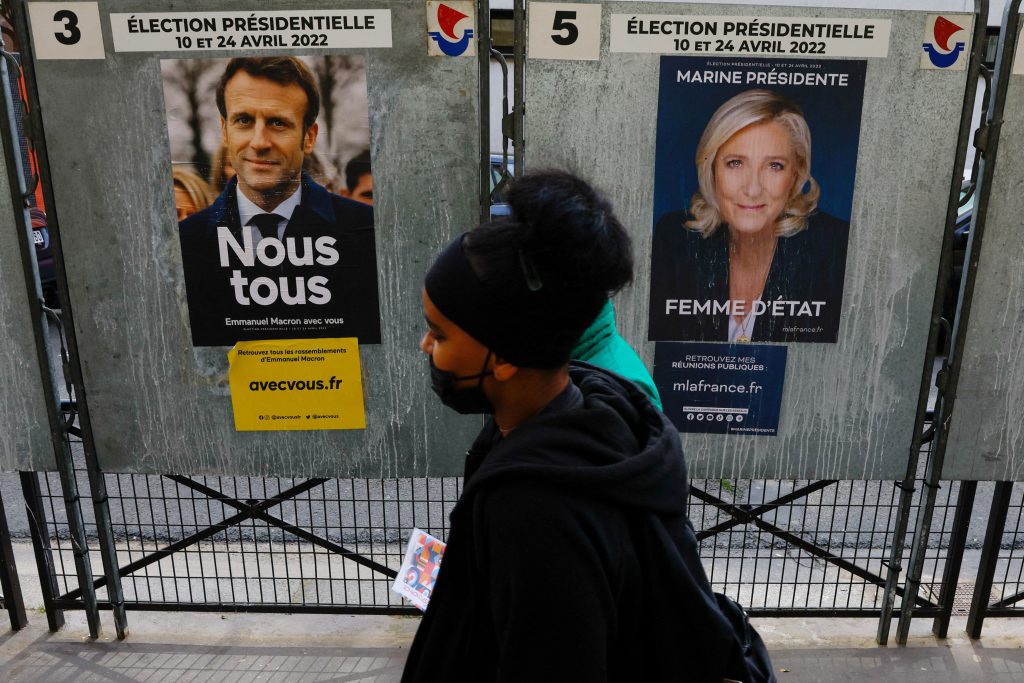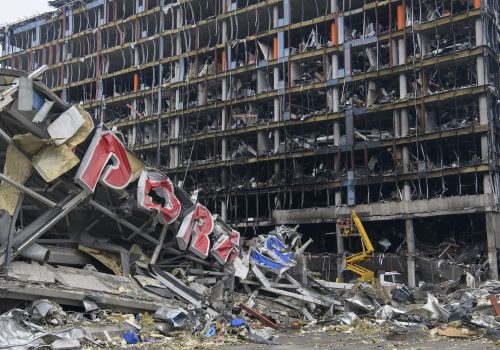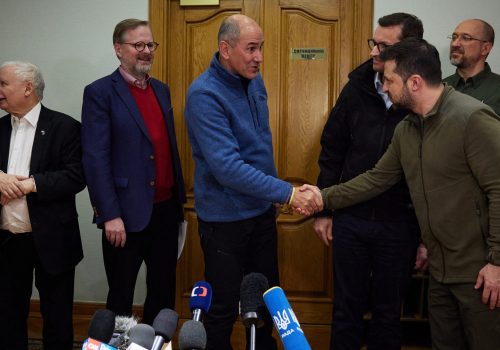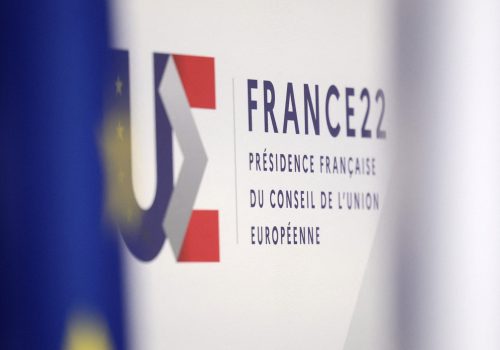State-against-state warfare is back on the European continent. Governments—including those once considered neutral or risk-averse—have made decisions that had been unthinkable just weeks before: unprecedented sanctions likely to severely hurt their own economies, drastic increases in defense spending, and the delivery of lethal weapons to a country at war.
All this amounts to a new geopolitical reality that the public was not expecting. Now, voters across the continent are facing opportunities to express their views at the polls in a series of key votes.
In Hungary and Serbia, right-wing leaders Viktor Orbán and Aleksandar Vučić successfully played up their ability to protect their populations in the context of the war, convincingly winning elections last weekend. But the upcoming presidential vote in France on April 10—with a second round held April 24—may be the most significant of the lot, given the size and importance of the country.
The run-up has been like no other in recent memory. With voters already transfixed by the war, few are paying attention to the electoral contest. The campaign itself has offered little reason for voters to refocus: President Emmanuel Macron, the current front-runner—who announced he would run at the last moment—has spent little time on the trail, while most candidates canceled rallies after the war broke out. As a result, a recent poll found only 62 percent of French people are interested in the campaign, a figure that’s far lower than usual.
How the war influences this election could be instructive far beyond France.
The impact on voters
When the war started, 82 percent of the population claimed to be “concerned” by it, with 65 percent saying it will play an important part in determining their vote.
Another poll asked voters to rank the main issues that will shape their choice. Cost of living remains the top one (52 percent), followed by the war in Ukraine (33 percent) and the environment (28 percent). Normally, domestic issues such as employment dominate such polls, but the shift in priorities—in the 2017 presidential election, no foreign or military issues were among the top concerns—stands to reason: The war has already had tangible consequences on the French economy (the rising price of gas, for instance) and society (around thirty thousand refugees have arrived in France). This means the line between foreign and domestic policy is blurred.
The French public is more or less receptive to the Russian narrative on Ukraine, with one out of two believing at least one of the Russian arguments on the origins of the war—such as the notion that the West is pushing Ukraine into NATO or that Russian-speaking Ukrainians support the invasion. But this does not mean they support Russia, since 78 percent of voters in late February believed the Russian invasion was “illegitimate.” All the candidates have condemned the attack, and now pro-Russian voters—already very skeptical of the political and media system—will need to choose from what is available, or sit out the election completely.
The impact on candidates
For their part, the candidates were required to adapt their electoral strategies and, sometimes, their views as the result of Russian aggression in Ukraine.
Macron—seen as a solid crisis manager—has benefited from the rally-around-the-flag effect, and statistics show that voters most likely to rank Ukraine as an important factor in their decision are also more likely to vote for him than any other candidate. As president of the Council of the European Union (EU), Macron is also at the front lines when negotiating with the other European leaders at a time when the EU is playing a major role on energy policy, refugees, and financing the delivery of weapons. Yet the political benefits of Macron’s geopolitical role are starting to ebb as the war is not as urgent for the French public as it was when it started.
The other candidates were aware of the advantage Macron was earning on the world stage. Valérie Pécresse, a right-wing challenger, convened a “strategic council of defense” in an attempt to burnish her own leadership credentials—but it failed to gain traction when compared to Macron’s real-life global leadership. Still, Macron’s advantage could backfire: Juggling a demanding international agenda and electoral campaigning is a difficult task requiring mental agility. Moreover, his crisis managing means he is spending less time explaining his policy proposals to voters.
Meanwhile, the fact that three of the top five candidates—Marine Le Pen, Eric Zemmour, and Jean-Luc Mélenchon—had once praised Russian President Vladimir Putin has not translated into a real electoral liability for them. The difficulties for Zemmour are more related to his inability to improve his image and to address the concerns of French voters on the economy. On this, at least, Le Pen is on more solid ground, having devoted much time to campaigning specifically on pocketbook issues. Zemmour also failed to connect on the question of refugees. The promise of keeping foreigners out of France has been a signature issue of his campaign, even as the public has warmly welcomed Putin’s Ukrainian victims. At the opposite end of the political spectrum, Mélenchon is the last real hope for the left, so left-wing voters appear ready to overlook his past comments on Russia.
Showing clear support for Ukraine is a strategy struggling candidates adopted. Yannick Jadot, the Green candidate, has been demonstrating in the streets and attacking French companies still doing business with Russia, including accusing TotalEnergies of being “complicit in war crimes.” But there are limits to this tactic: None of the candidates advocated for a non-fly zone, since no one wants France to become a co-belligerent in the war.
Though all candidates have expressed support for Ukraine, the war has revealed deeper shifts.
For example, Jadot and Socialist candidate Anne Hidalgo back the continued delivery of weapons for the Ukrainian military and called for an embargo on Russian gas and coal (not as large a sacrifice for France as for Germany, since it has invested heavily in nuclear power), while all the other major candidates opposed the embargo or did not take sides. Le Pen and Mélenchon, who have argued that France should withdraw from NATO’s integrated military command, have had to admit that the timing for this move was not right. The distrust of NATO also extends to European defense, as the far right remains skeptical of strengthening it. Finally, Macron and Pécresse committed to increase military spending, while the left did not make specific commitments.
The politics of uncertainty
The war in Ukraine has put geopolitics front and center in France as in no other recent election. Yet still, only half the population describe themselves as informed about foreign policy, and there are strong misunderstandings—among voters and some candidates alike—about several issues: what NATO is and does, what nuclear deterrence means, what it means to be at war, what France’s vulnerabilities and points of diplomatic leverage actually are.
Unfortunately, however, this month’s race is unlikely to change any of this—and the potentially record level of abstention, at a time of such grave crisis for the democratic world, is a troubling symptom of the lack of enthusiasm of the French people to make their voices heard.
This election has not sparked any passion, within France or abroad, and has been mostly overshadowed in the news by the war in Ukraine. The far right is now the leading political force in the country, and Le Pen could actually win the presidency. Yet few within France are thinking through the repercussions of such a result on European politics and French diplomatic engagement. The winner of the election will play a critical role within the United Nations, NATO, and the EU, as well as dealing with Russia to shape future European security.
With populist victories in Hungary and Serbia, and inflation breaking records, European unity is at stake in this year’s elections. While all eyes are directed toward Ukraine, looking away from rising populists is not an option.
Marie Jourdain is a visiting fellow at the Atlantic Council’s Europe Center and previously worked for the French Ministry of Defense’s Directorate General for International Relations and Strategy.
Further reading
Tue, Apr 5, 2022
How will the Russia-Ukraine war reshape the world? Here are four possible futures.
The Big Story By Mathew Burrows, Robert A. Manning
Putin’s war of choice in Ukraine is a world-historical event, marking the final act of the post-Cold War period and the start of a new era, yet unwritten. The spectrum of possible outcomes ranges from a volatile new cold or hot war involving the United States, Russia, and China; to a frozen conflict in Ukraine; to a post-Putin settlement in which Russia becomes part of a revised European security architecture.
Wed, Mar 30, 2022
Central Europe leads the way in backing Ukraine. Here’s its game plan for what’s next.
New Atlanticist By Petr Tůma
The European Union’s eastern members have an opportunity to prove their political and diplomatic mettle—and they're seizing it.
Mon, Feb 7, 2022
France’s new mantra: liberty, equality, digital sovereignty
New Atlanticist By Kenneth Propp
Digital sovereignty is a driving force in European policy debates—and the ripple effect of decisions taken in Brussels will be felt across the pond.
Image: People walk past official campaign posters of French presidential election candidates Marine le Pen, leader of French far-right National Rally (Rassemblement National) party, and French President Emmanuel Macron, candidate for his re-election, displayed on bulletin boards in Paris, France, on April 4, 2022. Photo by Gonzalo Fuentes/Reuters.



